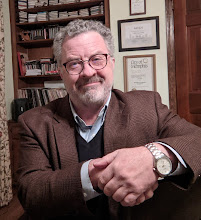The post-World War I world saw major changes. The fall of the Ottoman Empire – once a great power and later the “sick man of Europe” – saw the partition of the Middle East , independence of other territories, and a redefinition of Turkey by Mustafa Kemel Ataturk (1881-1938). China, ancient and formidable for centuries until later pillaged by colonial powers and plagued by warlords, emerged into nationhood first under Sun Yat-sen (1866-1925) and later Chiang Kai-shek (1887-1975). The Italian peninsula united at a nation in 1861 from the post -Roman centuries of foreign rule and competing city-states. Italy scrambled to find its place among modern nations with among other things a disastrous attempt at colonial expansion into Africa. Political opportunist Benito Mussolini (1883-1945) rallied the Italian people.
It may be an oversimplification to say that each of these stepped into a vacuum, but it is fair to say that these countries were in a radical state of change with no clear path forward and great anxiety among the populations.
The Ottoman Empire existed from 1299 to 1922. The long and complex history was marked by conquest, often religion-fueled. Like erstwhile adversary Russia, it was an absolute monarchy (sultanate) and often anachronistic. Ataturk’s accomplishment was to create the secular Republic of Turkey and work toward modernization. Modern Turkey has been an ally of the West from the Korean War to the present as well as trading partner.
China was united as an imperial state in 221 BC and various dynasties continued until the establishment of the Republic of China in 1912. There was trade with the Roman empire and the creation of a rich cultural history. Chinese fleets were involved in trade from East Africa to Japan and beyond during the Ming dynasty. In the 19th century western powers negatively impacted China (Opium War 1840) and unlike the Japanese, the Chinese did not modernize and did not fare well in opposing the West. The 1912 Republic was beset with problems including regional warlords. Chiang Kai-shek managed to contain these and bring Western style reforms to military and government. Fighting both the Japanese and Mao’s communists, Chiang was beleaguered for much of his time on the mainland before retreating to Taiwan in 1949.
A newspaperman Mussolini had leftist political leanings early on but managed nonetheless to become the father of Fascism. He led Italy from 1922 to 1943 and was executed by Italian partisans in 1945. His chief objective was to unite the Italian people who for centuries self-identified by region, city, and ethnicity. He is famously said to have “made the trains run on time” but more impactful was his work on a spirit of nationalism by engaging in a series of small wars in the 1930s. He did not join the Axis in WWII hostilities until June of 1940 having originally stated a non-belligerent status in 1939.
Three very different personalities with one common denominator of establishing (or redefining) a national identity. In ordinary times the defining of national identity can be fairly nuanced by pop culture, elections, the emergence of technology, and less decisive events than world wars or radical changes in governmental structure but the 1920s were anything but ordinary.
More importantly national leaders must be judged in no small part by how well their people fared.
The Italians suffered the strain of being nearly constantly at war - Libya, Ethiopia, Albania, and then the later world wide conflict. Accordingly Mussolini was viewed as hero, buffoon, and albatross at various times - finally the Italians themselves had enough and hanged him.
Turkey under Ataturk by contrast brought emancipation to women, an organized government, trade & industry, a new education systems & scores of new schools, and more. He is remembered 80 years later in the words of the current president with "eternal respect".
Chiang's China is a mixed bag. His accomplishments include land reforms, reining in the warlords, and some economic development. Beset by wars - some foisted upon him, some chosen - he was "building the ship while sailing the ship" in setting up a more modernized country in the midst of that chaos. The retreat to Taiwan in 1949 ended the experiment on the mainland, but created a thriving economy on the island. Mao's communist country is now the world's second largest economy due in large part to massive manufacturing & exporting... a kind of capitalism. I wonder would the Generalissimo would think about that?!

